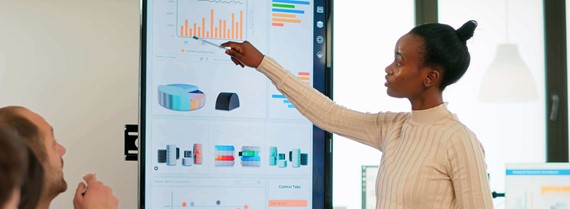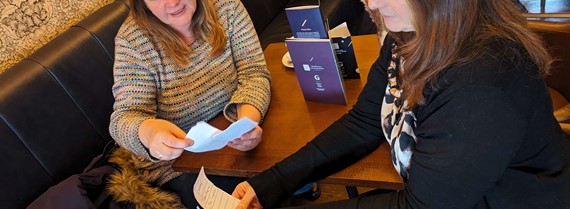
Photo by Patrick Tomasso on Unsplash
Ideation is a structured process of generating creative ideas or solutions to a problem, which often involves brainstorming, visualisation methods such as sketching and low-fidelity prototyping. Ideation allows product development teams to explore different options for their product or service and refine their ideas until they reach the best solution.
An ideation session can involve many different people but usually they involve the key stakeholders - product managers, designers and other leaders within the organisation. In this blog you will learn more about what ideation is, when it is best to conduct ideation sessions, and some key things to think about when planning an ideation session.
When should ideation happen and who should participate?
To be effective, an ideation session should involve as many of the key stakeholders in a project as possible, including product managers, designers, researchers, developers and other leaders within the organisation. Ideation can happen at any time, however, it is most effectively done after you have used design research to thoroughly explore the needs of your users and your market. Design research allows you to generate well-informed ideas and ensures that the solutions you come up with are based on evidence rather than guesswork and assumptions.
How can ideation sessions help you create better products/services?
Ideation helps you create better products/services by bringing multiple perspectives together, including those of your users/customers. A well-structured ideation session allows a wide range of potential ideas to be explored, including those that have never previously been considered, increasing the chances that the team will move beyond what has already been done to create new and innovative solutions.
Good starting points for ideation
Once you have defined your problem and goals for the ideation session and invited everyone who should have input into the solution, you should present the problem at hand, including as much context as possible. A simple and effective way to start the ideation process is to ask the question like “how might we [solve the user's problem as identified in the research]?"
Each attendee should be given time to think individually about the problem and come up with their own personal ideas before discussing them as a group. This process usually leads to a much deeper, more revealing exploration of the problem and often throws up new (and sometimes wacky!) possibilities.
Discuss each idea and cluster together any ideas that overlap or have a common theme, then assess each idea - how feasible is it? What issues does it potentially have? This process will help narrow down ideas, and allow the team to explore, examine and build on the ones with the most potential.
The process of coming up with ideas, discussing them, assessing them against criteria, narrowing them down, and repeating this cycle again, allows you to hear every voice and consider a wide range of ideas.
Ideation: Factors to consider
- Beware of dominant voices/personalities. It's important to create a sense of safety, where everyone feels heard. Consider bringing in an experienced facilitator to run the session, to decrease the influence of particular opinions/biases.
- Clear, well-defined goals are vital. An ideation session that lacks structure or focus runs the risk of being chaotic and unproductive. Goals needs to be open enough to allow exploration, but not so open that they don't provide a stable, realistic boundary in which to work.
- Dismissing ideas is as useful as generating them. It may seem that a session throws up idea after idea that definitely won't work - often, this is the most effective way to get to the never-before-considered, lightbulb moment that unlocks something truly innovative. Multiple sessions may be needed to uncover that one valuable insight.
An effective ideation session can be a great way to move a team forward, uncovering previously unexplored potential for a product or service. It can take some time to get the process right, so if you would like help from any of our experienced facilitators, or you would like some training in carrying out a great ideation session, feel free to get in touch.



